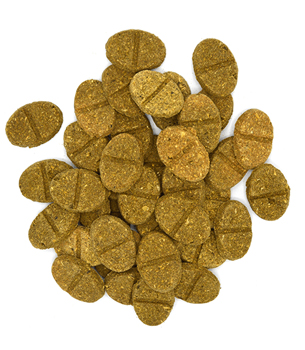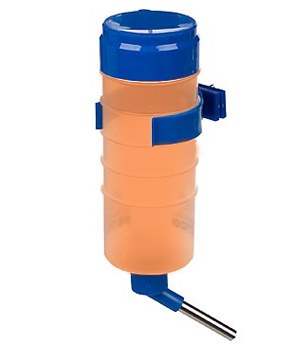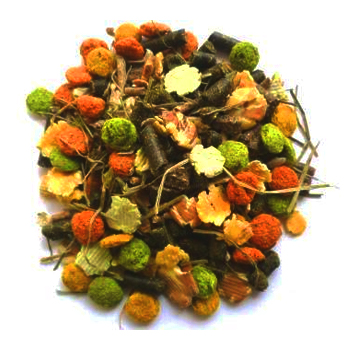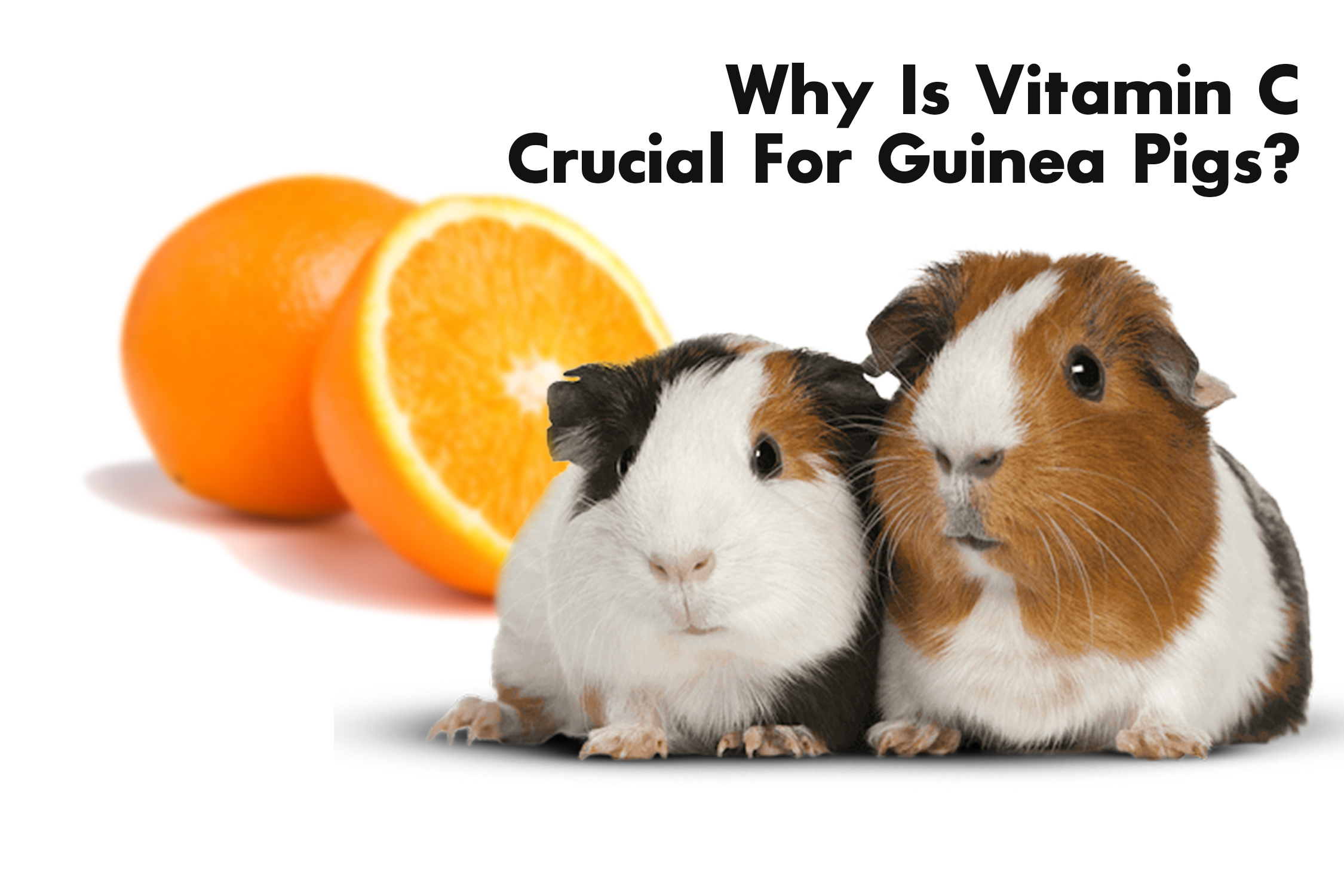Did you know that guinea pigs are one of the very few animals that are unable to manufacture their own Vitamin C in their bodies? The only way these animals are able to access this vitamin is through external sources, such as food and supplements. This is why pet owners have most likely heard of Vitamin C being linked to guinea pigs and it also plays an important role in wound healing as well as the healthy development of skin, bones, and blood vessels. Therefore, if your pet does not have sufficient Vitamin C in their system in the long run, they may suffer from several health problems.
On average, guinea pigs need about 10-30mg of Vitamin C intake daily. Do note, however, that this amount will depend on several factors, such as age, weight, and overall health condition of your pet. If you have concerns on whether you are providing adequate Vitamin C for your pet, it is best to consult with a veterinarian on the proper dosage required. Generally, guinea pigs will have all the necessary Vitamin C if they have a well-balanced diet consisting of Vitamin C fortified cavie pellets and varied fresh foods. But they will need to be supplemented with additional Vitamin C if they are pregnant, nursing, young, or sick.
How To Know If My Guinea Pig Has A Vitamin C Deficiency?
Typically, the primary cause of Vitamin C deficiencies in pet guinea pigs is insufficient Vitamin C in their diet. But there are instances where your piggy may still suffer from deficiencies even if they are being fed with a balanced diet consisting of adequate Vitamin C. This is due to secondary illnesses or disorders that may hinder your pet’s ability to absorb the vitamins. Therefore, it is recommended to regularly bring your pet for checkups at least twice a year to detect any underlying or potential health issues.
Knowing how to distinguish abnormal signs from Vitamin C deficiency will be beneficial to your pet’s health. Here are some common signs and symptoms to look out for:
- Lackluster coat
- Swelling or sores around mouth/lips
- Delayed wound healing
- Poor appetite
- Swollen joints
- Lethargy
- Diarrhoea
Pet owners should be aware that many illnesses will result in similar signs and symptoms as above. Therefore, if your pet is exhibiting any of those on the list, it is recommended that you take your pet to a veterinarian for a thorough assessment to see what you are dealing with.
What Happens If My Guinea Pig Is Diagnosed With Vitamin C Deficiency?
If your guinea pig is diagnosed by a veterinarian to be Vitamin C deficient, treatment plans for your pet can be straightforward. The vet will typically recommend Vitamin C supplements given in pill or tablet form, or sometimes via injection. Additionally, the vet may also advise pet owners to have their piggie’s diet adjusted to ensure that they will be getting enough Vitamin C in the future if their diets are the primary cause. Early detection and prompt treatment will get your guinea pig back to its healthy state sooner.
How Can I Supplement Vitamin C For My Guinea Pigs?

Vitamin C supplements are available at vets and pet shops
Again, a healthy guinea pig that is fed with good quality cavie pellets and varied fresh foods paired with quality hay/grass should get all the Vitamin C that they need. In this case, supplements will not be required. But if fresh foods are not a part of your pet’s diet, consider introducing them as occasional snacks or treats to boost additional Vitamin C in their system as a safeguard. Take note that fresh foods, or any food for that matter, should be introduced gradually to prevent an upset tummy in your pet. Other supplements you can consider for your piggy’s are Vitamin C tablets or liquid additives and syrups. All these are readily available at your local veterinary clinic and/or pet stores. Always follow manufacturers dosage instructions, or consult with a vet for suitable products for your pet. If your pet is showing signs and symptoms of deficiency, it’s best to get them checked by a vet for an appropriate treatment plan.
Are There Any Risks Of Vitamin C Overdose?
Little is known about the effects of too much Vitamin C intake. But since Vitamin C is water-soluble, going slightly over the recommended daily dosage will be excreted through your pet’s urine. But of course, if your pet is given excess Vitamin C in the long run, there may be grave side effects. Again, seek your veterinarian’s advice if you are unsure of the dosage for your pet or if you believe that they may need additional supplementation of Vitamin C.
Important Things To Note About Vitamin C
All animals should have a balanced diet for long-term good health. But there will be times when supplements can be given to prevent your piggy’s from falling short of Vitamin C in their bodies. Because Vitamin C is water-soluble and may lose its potency over time, this may result in inadequate Vitamin C in your pet’s diet. If this is the case, then it is important to ensure that your pet is getting a stabilised source of Vitamin C.

Vitamin C in drinking water is not very effective
If you are considering supplementing your guinea pigs with Vitamin C through their drinking water, this method may not be the best option. Whether it is dissolving crushed Vitamin C tablets or additives. This is because Vitamin C is easily broken down by light, heat, and humidity, so it will lose its potency quickly in your piggy’s water bottles. You will then need to replenish their drinking water with Vitamin C at least twice daily to ensure that the vitamin in the water is still potent.
Another issue that may arise when it comes to supplementing Vitamin C via drinking water is that the vitamin will alter the taste of the water and may cause your guinea pig to avoid drinking water altogether. If they are not kept hydrated, it will lead to other health issues. Therefore, it is generally recommended to supplement your pet with tablets or syrup given orally, or through fresh foods to ensure that they are receiving adequate amounts of the vitamin.
In regards to food items, Vitamin C can also lose its potency over time. Factors like light, heat, and humidity will once again affect how fast Vitamin C stays potent in your pet’s pellets. Therefore, to avoid this scenario, you should always store pellets in cool and dark places, and never let them be exposed. If zip locks are not part of the pellets’ packaging, you should keep them in air-tight containers. Additionally, if your guinea pig’s food tends to last for a long time, you should consider getting smaller bags of pellets to ensure it stays fresh. Taking these factors into consideration, this may be why pet guinea pigs are diagnosed with deficiencies even though they were fed with quality guinea pig pellets.

Guinea Pigs can sometimes be picky with their foods
Lastly, it’s also important to consider whether your guinea pig is consuming all of the food that they are given. If you are currently providing your piggies with muesli-style mixes and noticing that they tend to be picky with their food, then switch them to a pellet-only diet. This is helpful for picky pets who may avoid pellets that have Vitamin C added to them because these pellets are considered less tasty compared to other items in the mix. As a result, your pets may fall short of Vitamin C in the long run. In the end, you’ll want to keep in mind all these factors to know whether or not your pet is healthy and getting all its required vitamins. It can also be helpful when it comes to determining what steps you are taking that may have led to a deficiency in your pet so you can easily correct them.
Ultimately, sufficient intake of Vitamin C should be attained through a well-balanced diet, with additional supplementation given as a safeguard or when deemed necessary by a veterinarian.

